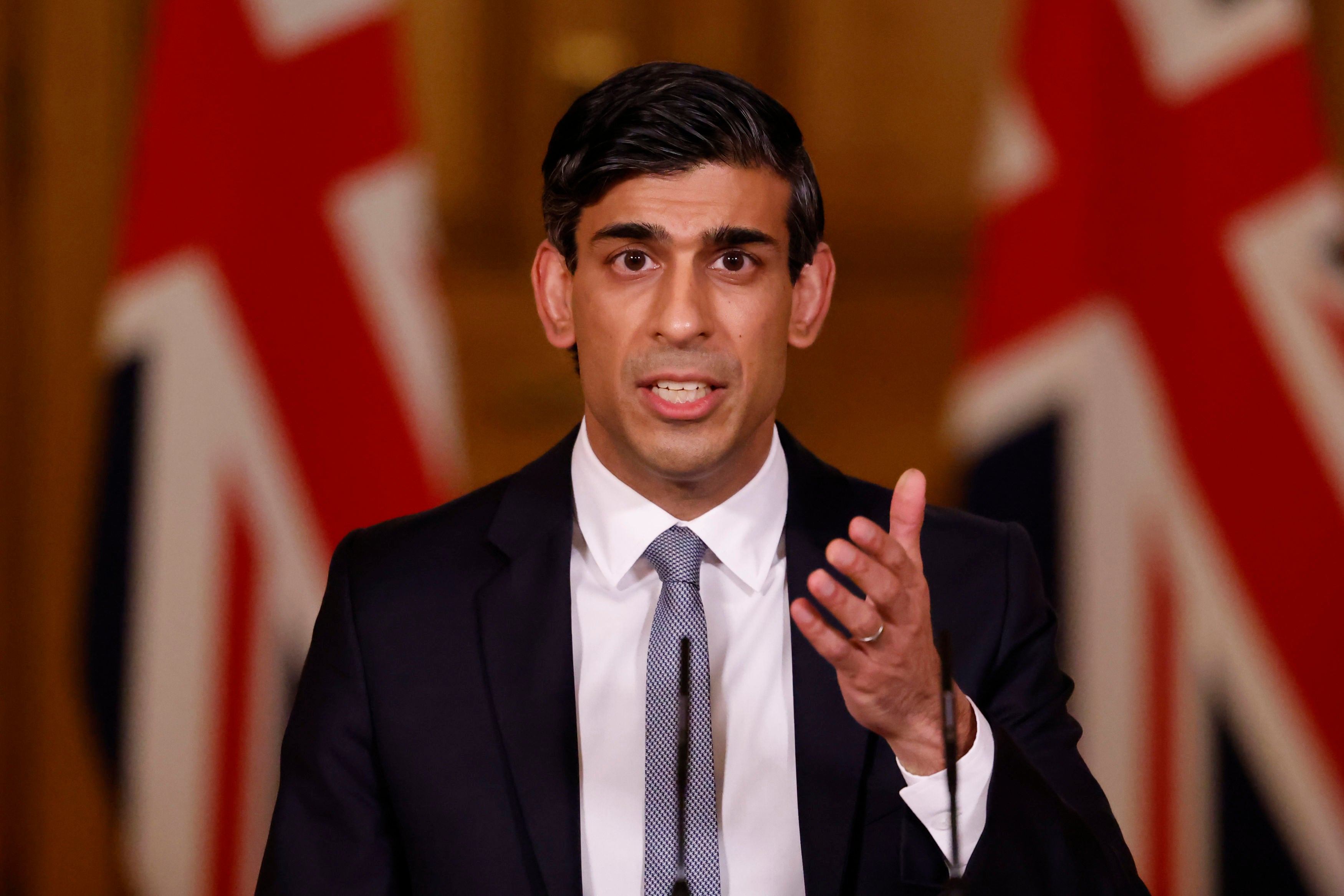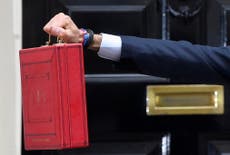The pandemic has laid bare the social care crisis as never before – so why didn’t Sunak tackle it in the Budget?
The chancellor had the opportunity to grasp the nettle. Because money, as ever, is at the root of the problem


Your support helps us to tell the story
From reproductive rights to climate change to Big Tech, The Independent is on the ground when the story is developing. Whether it's investigating the financials of Elon Musk's pro-Trump PAC or producing our latest documentary, 'The A Word', which shines a light on the American women fighting for reproductive rights, we know how important it is to parse out the facts from the messaging.
At such a critical moment in US history, we need reporters on the ground. Your donation allows us to keep sending journalists to speak to both sides of the story.
The Independent is trusted by Americans across the entire political spectrum. And unlike many other quality news outlets, we choose not to lock Americans out of our reporting and analysis with paywalls. We believe quality journalism should be available to everyone, paid for by those who can afford it.
Your support makes all the difference.It’s getting on for two years since Boris Johnson stood outside No 10 and promised, in his first speech as prime minister, to “fix the crisis in social care once and for all”.
There was no detailed plan in the Conservative manifesto for the 2019 election. A pledge to initiate cross-party talks within 100 days of Johnson’s election victory came and went with a written invitation to discussions from the health secretary Matt Hancock. Then, silence.
Most ominously – silence in yesterday’s Budget.
Admittedly, ministers argue that one crisis – the pandemic – has simply displaced another. There’s only so much a prime minister, chancellor and health secretary can do. When questioned this morning on the absence of a plan on Radio 4’s Today programme, the chancellor said the government was still committed to a cross-party solution, but the immediate crisis had to take precedence.
The problem, though, is that coronavirus has laid bare the scale of the initial crisis Johnson promised to fix. There have been more than 30,000 deaths in care homes in England and Wales since the start of the pandemic – not even counting people who use social care in the community.
Those working within the sector have told Channel 4 News in heartbreaking testimony that a lack of staff, years of underfunding and a fragmented system have all contributed to what they believe was a preventable tragedy.
The chancellor had the opportunity to grasp the nettle yesterday. Because money, as ever, is at the root of the problem. Care workers are often poorly paid, with as many as a quarter on zero-hours contracts.
A proposal to make the sums add up has, in fact, been put forward by Hancock and Johnson. It would see a £45,000 cap on care costs for individuals, with a £100,000 floor ensuring that anyone with assets below that level would qualify for support. Currently, you only secure local authority funding help if your assets – including the value of your house – amount to less than £23,250.
Yet that plan doesn’t appear to have got Treasury signoff, and its omission from Rishi Sunak’s Budget speech continues a pattern of political evasion by successive governments that has persisted for decades.
The present – somewhat, threadbare – proposals are actually based on recommendations made 10 years ago by a commission chaired by Sir Andrew Dilnot. The Care Act 2014 even legislated for the introduction of a cap, only for the whole thing to be postponed by David Cameron’s incoming government.
But the saga was already going on long before the Dilnot Commission. A Royal Commission on Long Term Care was established by the Labour government, and reported in 1999.
Sunak was still at university, in 1999. He’s got his hands on the coffers, now, though – and with half an eye on a vacancy at number ten at some stage, campaigners wanted him to use the opportunity to burnish his credentials as a bold, innovative politician, brimming with ideas and energy.
Of course, the current generation of party leaders are spooked by what happened to Theresa May in 2017. Conservative voters took fright when her social care policy made clear people would have to pay more of the costs, earning it the sobriquet the “dementia tax”. A U-turn followed, and many in her party think the fiasco cost her the majority – not to mention the landslide she’d been predicted.
With the overall tax burden already set to be the highest since the 1960s, you can understand, perhaps, why Sunak ducked the challenge. But surely the pandemic has taught us all that governments procrastinate at their peril?
Instead, a full year after Hancock wrote to opposition parties asking to “hear your views, your proposed solutions and your concerns”, the long grass beckons, once again.
The prime minister told the House of Commons liaison committee he’d bring forward plans later this year. The Treasury secretary, Steve Barclay, wrote to campaigners saying it wouldn’t be until next year. Bizarrely, the health department has since suggested Barclay’s missive was a typo. If that’s the case, maybe he’ll correct the record.
Because providers warn that any further delay is unthinkable. The Association of Directors of Adult Social Services told The Independent, before the Budget, that the care system was at risk of “catastrophic failure in some areas”, with the number of people needing care doubling in some parts of the country since last March.
MPs from across the House say a cross-party consensus must be reached and reforms brought into law – sooner or later. And, let’s face it, it’s already later.
Cathy Newman presents Channel 4 News, weekdays, at 7pm



Join our commenting forum
Join thought-provoking conversations, follow other Independent readers and see their replies
Comments